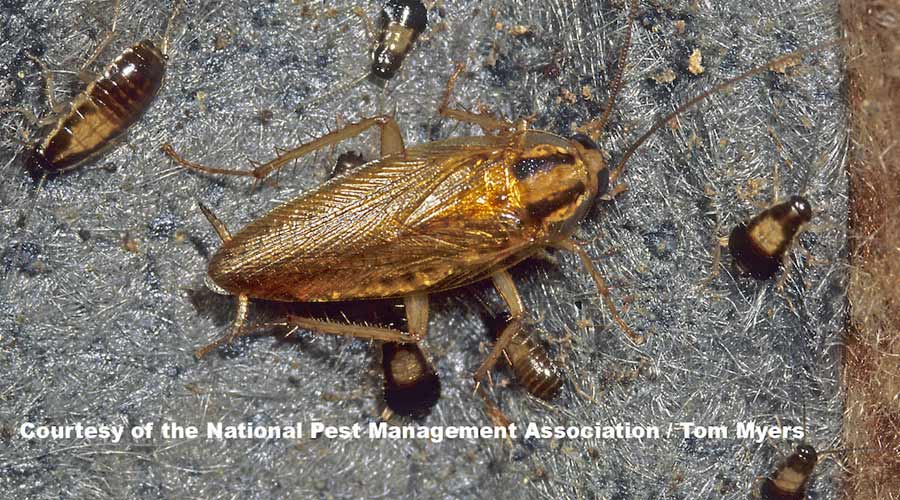Pest Control Tips For Understaffed Commercial Business During COVID-19 (original) (raw)

Contributed by Cindy Mannes, senior vice president of Public Affairs, National Pest Management Association (NPMA)
Nearly all industries have been impacted by the rollercoaster that has been the COVID-19 pandemic. In spring of 2020, many businesses had to lay off staff due to mandated closures and now most are struggling to recruit new employees to fill roles as they reopen. Because of this, many commercial businesses have been forced to work with a smaller staff than they would have previously. Unfortunately for facility managers, pest populations did not stop growing during the pandemic and still pose a significant threat to commercial businesses, making it imperative to keep pest control top of mind.
Pests are not just a nuisance to commercial facilities — they pose a serious threat to the health of both customers and employees of these businesses. A very frequent invader of commercial facilities, rodents are notorious for contaminating food supplies, causing structural damage and spreading diseases like hantavirus and salmonellosis. Cockroaches have been reported to spread over 30 kinds of bacteria, as well as parasititic worms and human pathogens. Their droppings can also trigger allergic reactions and asthma attacks. Termites threaten the structure of commercial facilities — NPMA estimates that termites cause up to $5 billion in property damage in the United States every year, which can be extremely detrimental to a business’s bottom line.
Even in these unusual times, maintaining proper pest control practices is vital to the survival of all commercial businesses. These practices can help prevent infestations, saving on costs and precious manpower. NPMA recommends facility managers and their teams take the following steps to prevent pest infestations when they are working with reduced staff:
· Conduct routine pest inspections
Identifying a pest issue before it gets out of hand is essential. Facility managers and employees should constantly monitor for common signs of an infestation. These signs may include live or dead pests, droppings, nests or structural damage. Employees should also thoroughly inspect any incoming packages for pests before bringing them into the facility.
· Enforce proper sanitation measures
Many pests, including flies, rodents and ants, are attracted to food. If they can source food from your business, there is a higher chance that their populations can survive and grow into a larger issue. For some pests, cardboard boxes are also an appetizing meal! Eliminate potential food sources by properly disposing of garbage into sealed receptacles, cleaning high traffic areas and storing any food products in tightly sealed containers.
· Eliminate potential sources of shelter
To survive, pests also need shelter. Sources of shelter for pests in commercial businesses may include stairwells, shelves, lockers, worktables and machinery. Many pests, like rodents and cockroaches, are attracted to moist, dark areas where they can be hidden from sight. Encourage staff to keep storage spaces clean and organized—tightly packed materials may provide cover for pests. Ensure your business is well-ventilated and tidy to reduce excessive moisture and potential hiding spots. Outdoors, keep lawns and vegetation well-trimmed to discourage rodents and other pests from living just outside.
· Seal points of entry
Reducing possible entryways into your business is key for preventing infestations. Mice can fit through holes the size of a dime and insects need even less space. Help eliminate potential access points by sealing areas where utility lines enter the building, sealing any cracks or holes in exterior walls, properly screening vents and windows, repairing broken doors or windows and installing door sweeps on exterior entrances.
· Team up with a licensed pest control professional
While commercial businesses may have smaller staffs than usual, working with a licensed pest control professional can help lighten the load. Professional pest control was deemed an essential service during the COVID-19 pandemic by the United States Department of Homeland Security, allowing companies to continue their vital work. NPMA recommends that businesses collaborate with a pest control company to develop an integrated pest management plan (IPM). An IPM plan is a comprehensive pest control method that that focuses on three basic techniques: inspection, identification and treatment by a pest control professional. This method will help ensure pests are properly controlled and deterred in a commercial business setting.
Although the COVID-19 pandemic has presented countless challenges for commercial businesses, maintaining a firm pest control plan does not have to be a struggle. Even with a reduced number of employees, any business can take small steps to effectively prevent pests from infiltrating their facility.